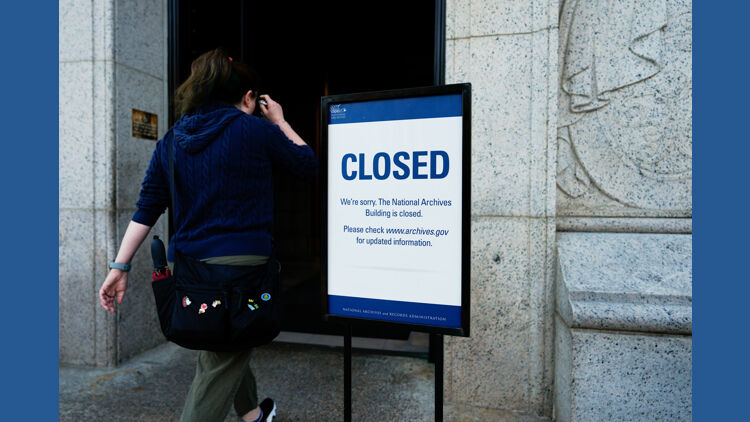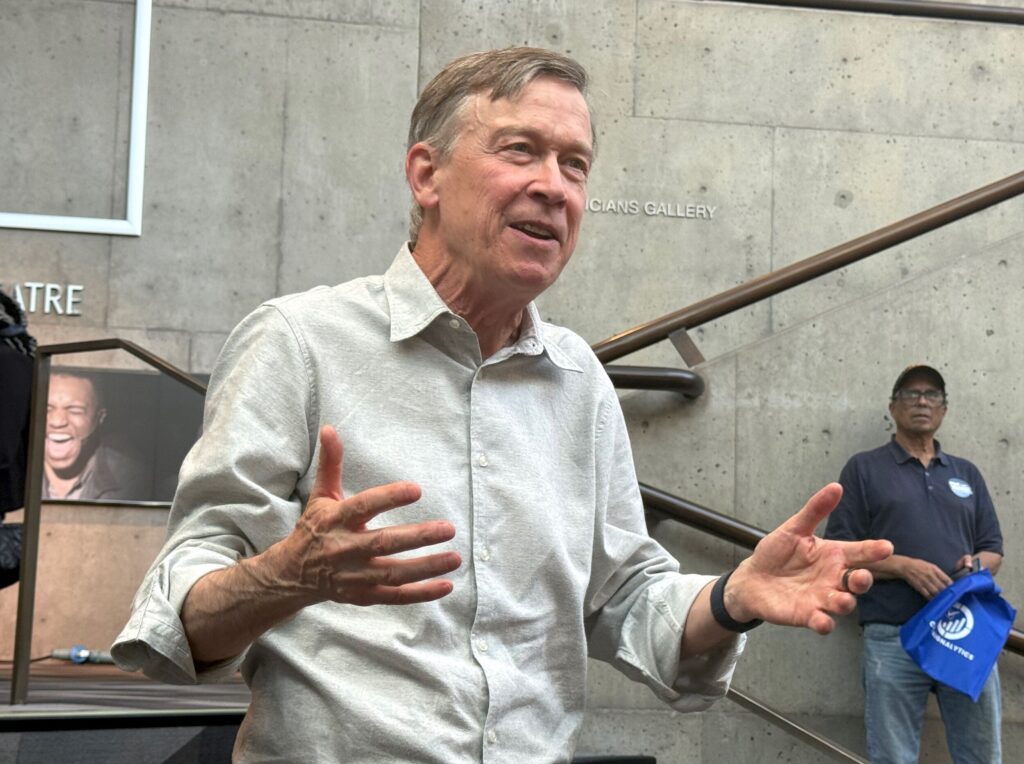After pushback from RTD board, Colorado transit bill faces significant changes
After facing criticism from the political entity whose makeup they sought to change, sponsors of a bill aiming to redefine the Regional Transportation District’s board of directors said the measure will undergo significant changes.
Some RTD board members said the proposed changes to its structure and its election process would disenfranchise and discriminate against minority populations and the disabled community.
In response, the bill’s sponsors said they are deleting the bill’s provisions relating to the board’s governance aspects.
RTD Board candidate Chris Nicholson, who opposed the bill’s introduced version, said he is pleased with the sponsor’s decision to eliminate its governance provisions.
“I think we’re in a good place now, and I’m grateful to the sponsors for listening to the voices of community,” he said. “Now, it’s on the next board to prove that was the right choice.”
As introduced, House Bill 1447 sought to reduce the number of board members from 15 to seven, with two appointed by the governor’s office and the rest elected at large, instead of representing individual districts.
The bill also required RTD to increase collaboration with the Denver Regional Council of Governments, develop a 10-year strategic plan, increase board members’ salaries from $12,000 to $35,000, and transfer driver training duties from RTD to the Department of Transportation.
The bill’s sponsors in the House, Rep. William Lindstedt, D- Broomfield, and Rep. Meg Froelich, D- Englewood, said the state’s transit system is in dire need of reform.
“While we’ve heard a lot of critiques about the governance reform, one thing we’ve not heard is that the district is doing perfect for all of its riders,” said Lindstedt “The state does need to take action to improve our multimodal transit agencies not only here in the Denver metro area, but across the state.”
Lindstedt and Froelich said they plan to hold discussions with stakeholders and members of the community to figure out what kinds of changes, if any, need to be made to the board’s structure.
Froelich argued that the remaining provisions in the bill are crucial to helping RTD increase ridership, which, she added, will ultimately help the state reach its climate and housing goals.
She acknowledged the criticism drawn by the initial iteration of the bill and also apologized to people who might have been negatively affected, saying, “We understand that emotions have run hot, and if there are any apologies to be made, we certainly are making them.”
A lack ridership, workforce and funding
While the bill’s governance provisions drew criticism, nobody suggested that there aren’t issues with Colorado’s transit infrastructure. The root of those issues differs, depending on who is asked.
Erik Davidson, the current RTD board chair, said 75% of RTD’s funding comes from taxpayers, many of whom are paying for a service promised to them two decades ago but remains unavailable.
On the bright side, Davidson said, RTD’s current budget is balanced, and its midterm financial outlook is stable, despite receiving far less funding per capita than other major American cities. The bad news, however, is that the cost of maintenance and operating expenses over the next decade is expected to outpace growth in sales and use tax revenues.
Davidson said the city of Philadelphia is facing a similar challenge, which has led the Pennsylvania legislature to run a bill to increase funding for its transit system.
Colorado ranks 44th nationwide for local transit funding. According to the Southwest Energy Efficiency Project, RTD’s 2021 operating budget did not receive any contributions from state resources. In comparison, the average transit agency in the United States receives about 20% of its operating budget from state funds.
Another major challenge RTD faces is restoring ridership numbers to pre-pandemic levels, which advocates say many other cities have accomplished. Bustang, CDOT’s commuter bus system, has surpassed its pre-pandemic ridership levels, according to Frommer. He noted that, while national transit ridership in 2023 reached about 80% of 2019 levels, RTD only reached about 60%.
“We can’t accept the challenges of COVID as the new normal, and we know from other parts of the country that transit can recover,” said Shoshana Lew, executive director at the Colorado Department of Transportation.
The ridership conundrum goes hand in hand with another pressing issue for RTD: a workforce shortage. Because of employee retention issues, RTD is still operating on its pandemic schedule, and several lines have been discontinued due to insufficient staffing. Frommer said only about 20% of RTD routes provide “frequent service,” which is defined as buses arriving every 15 minutes or less.
“How can we expect transit to compete with driving when most of the buses and trains only come every 30 to 60 minutes?” he asked.
Meanwhile, two bus operators and Amalgamated Transit Union Local 1001 members raised issues about the workforce shortage, which they claimed was not addressed in the bill.
Union president Lance Longenbohn argued that operators should be represented on the board since they are directly affected by its decisions.
“Changes that don’t fully involve our voices are not always changes for the better of the workers or of RTD,” said union member Ron Short. “We understand the intentions of the bill sponsors, and we share the desire to improve transit, but we don’t feel that our experience is being involved.”
Change is coming
Saying she is perhaps the only member of the Colorado General Assembly who commutes to the Capitol via RTD, Rep. Jennifer Parenti, D-Erie, shared the difficulties of her 50-mile bus ride.
She expressed confusion as to why board members are telling the Transportation, Housing and Local Government Committee nothing needs to be changed about the board when her district is “perennially underserved” regarding transit.
“The board is so poorly organized that even two leaders on the board have been unable to right a perennial wrong for our communities,” she said, adding that the bus line she takes to the Capitol only departs at 5, 6, 8, and 10 a.m., leaving a large gap at what she called “prime commuting time,” which is the hours between 6 and 8 a.m.
“That is not effective commuter service,” she said. “It is not meeting my needs. This is not an effective board structure, so it’s really hard for me as a representative of these communities to sit and hear a defense of this structure. The board needs to change, because it’s not meeting the needs of our communities.”
No action was taken on the bill because amendments are still being worked on.
“Changes are coming,” Lindstedt said. “We’re committed to working with all of the stakeholders, agree or disagree, on making this work better for all of our communities across the entire district.”
The bill is also sponsored by Sen. Faith Winter, D- Westminster, in the Senate.











